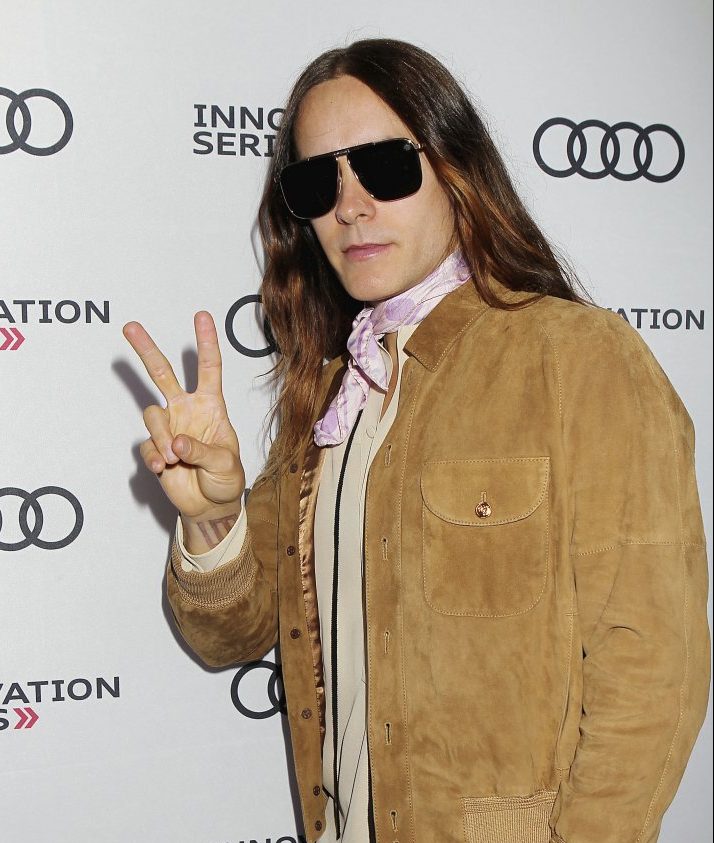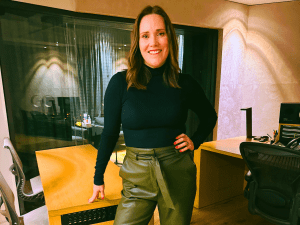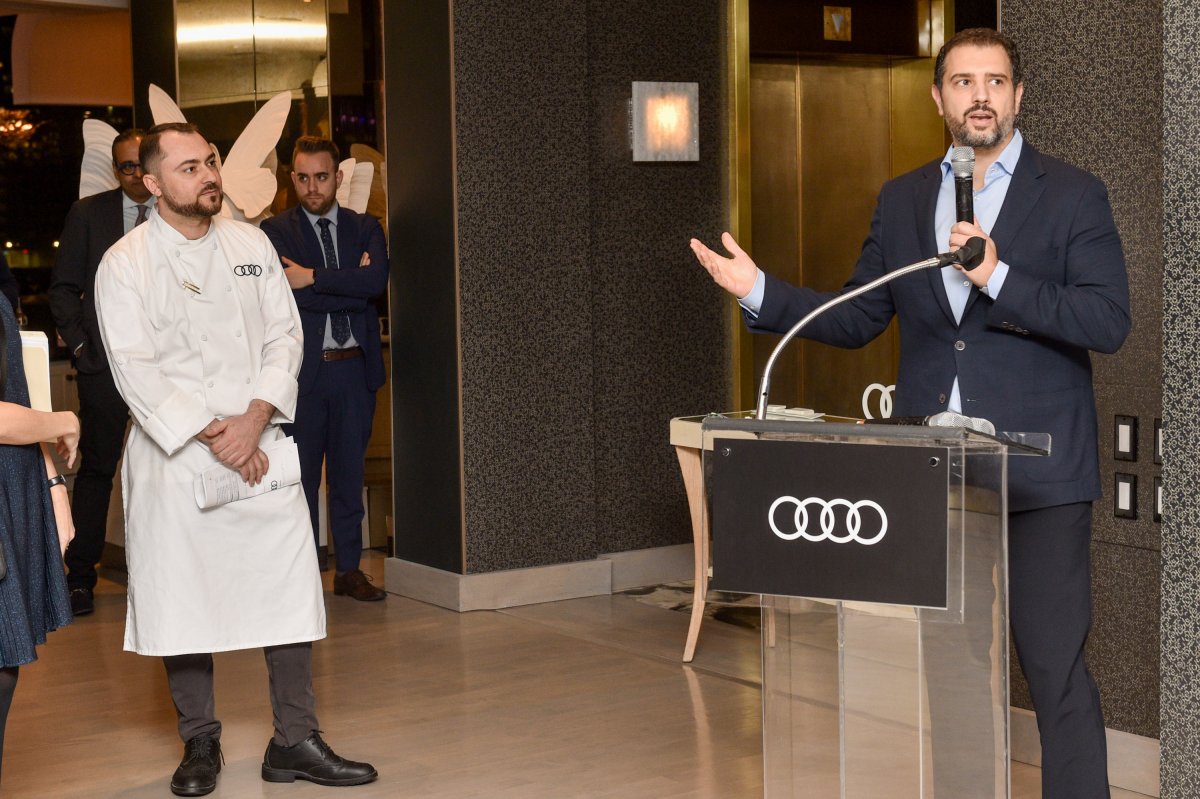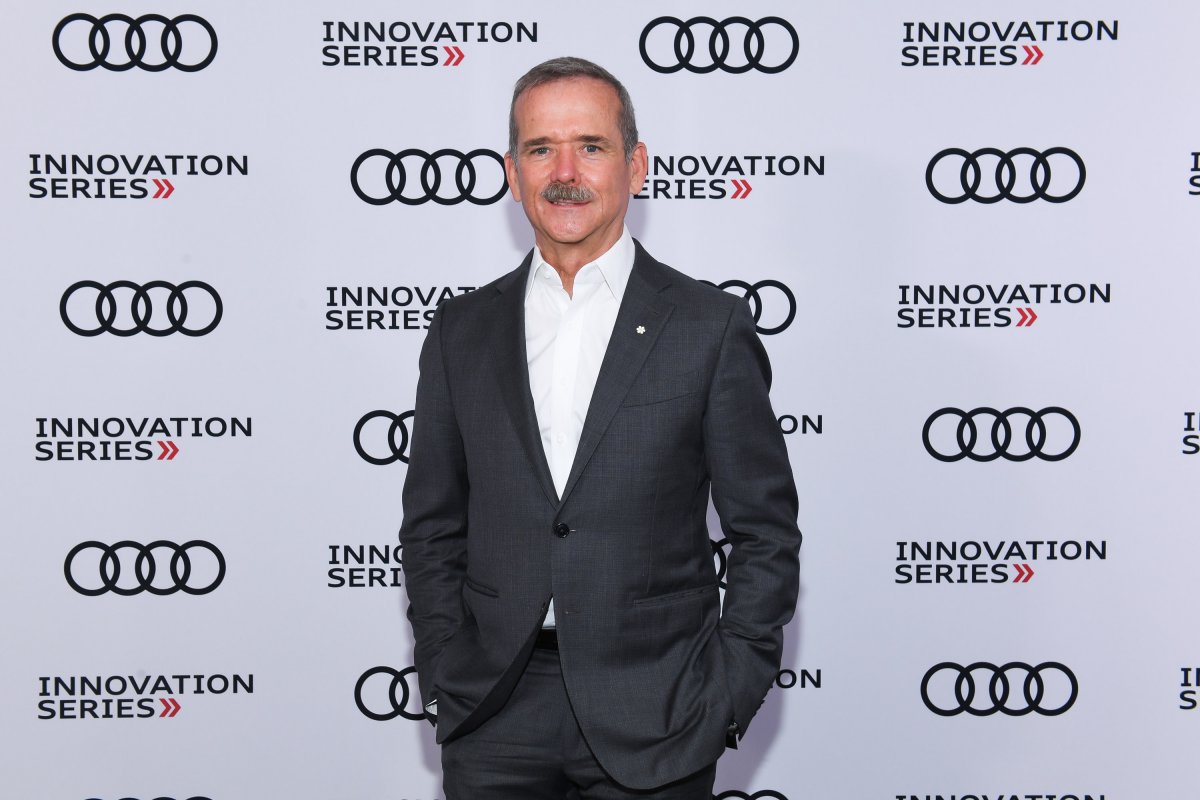What does it mean to be innovative? For the past four years, Audi has explored how we manifest and harness innovation through its annual speaker showcase, Audi Innovation Series. Meant to spark a dialogue around the changing world around us, the series features a leader every year who is known for changing the trajectory of their respective industries, with past guests including fashion icon Tommy Hilfiger; Netflix co-founder, Marc Randolph; Apple co-founder, Steve Wozniak and Toronto Raptors President, Masai Ujiri.
Now in its fifth year, the Audi Innovation Series welcomed award-winning actor, musician, director, and entrepreneur Jared Leto as their guest of honour. In a discussion with CBC news anchor Dwight Drummond, the pair discussed the importance of taking risks, how technology has shifted the entertainment industry, and what it means to be innovative in the creative arts.
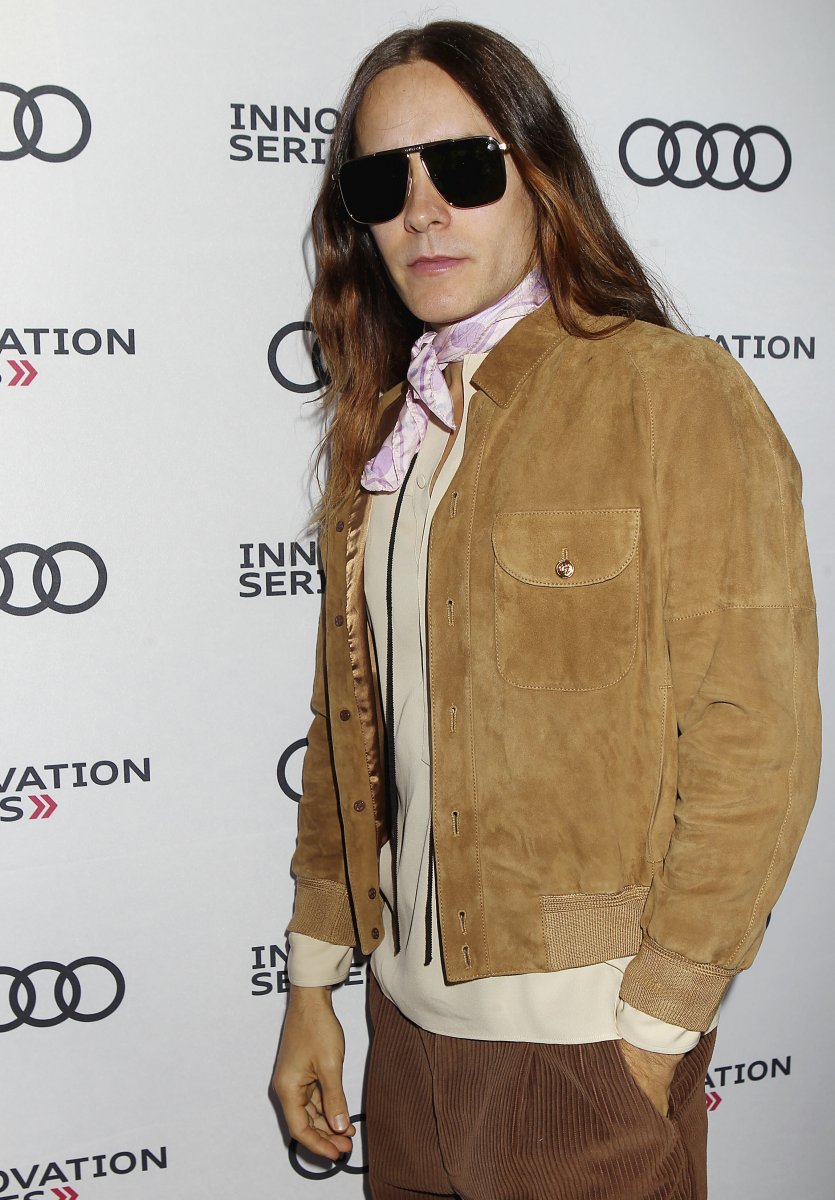

Dwight Drummond: Did you picture yourself then having the kind of accomplishments and the career you ended up having in Hollywood?
Jared Leto: No, not at all. I’ve had as much fear and dealt with as much failure as, I don’t want to say as much as anybody else, but I certainly have my fair share. I think that’s just a part of the process. Those are both pretty dirty words most of the time but they’re also great fuel and there’s a blessing in fear. There’s a blessing in failure, and I’ve certainly been on both ends of those things.
Dwight Drummond: The breadth of your career has been incredible. How much do you attribute the decades of success to some risk-taking in your career?
Jared Leto: Well, it’s pretty clear that without the risk, there’s very little reward and most of the really valuable experiences in my life that I’ve had have been attached to quite a bit of risk. I just finished a project and I consider it very risky in terms of where we went with that project. But you have the process on one hand and the result on the other, and even in failure, I don’t think I’ll ever regret taking the risk because of what was learned. It’s exciting. I find it pretty fascinating to live in that space and to be on the edge.
Dwight Drummond: The Audi Innovation Series is about building a conversation around creativity and innovation, something that you talk about. Can you speak a little bit about how you define elements like creativity and innovation, and how that shows up in your work?
Jared Leto: I think it has a lot to do with intention and I think all of us have a voice inside of us that gives a sense of balance and is a bit of a guidepost—[it’s] creative intuition. It’s pretty loud because I listen to it often. I think if you feed that voice, it probably is a really good thing. And of course there are other voices trying to be heard like fear and failure, so it’s about what you listen to and then the action that follows. I just played a character, for example, that was a pigeon fancier. He loved pigeons and I learned a lot about pigeons because one of the things you do when you take on a role is you study, you do research. I thought of pigeons (having spent a lot of time in New York) as rats with wings but [they] are quite remarkable. You can let them go in Portugal and they will fly all the way home to Great Britain. And there are these people that are passionate about raising pigeons and racing them called pigeon fanciers. So like the pigeon who can find its way home, I think all of us have inside of us a compass. For some people, it’s a creative compass. For [other] people, it might be an innovator’s compass. It could be a business compass, it could be a moral compass, but we have this compass and I tend to let that guide and propel me and the creative choices that I make.
Dwight Drummond: In addition to being an actor, you’re also a talented musician, a director, and also a business leader. Are there elements of your personal philosophies that show up across all areas of your work?
Jared Leto: I think so. I think what I’m talking about is tied to authenticity and being yourself. I’ve always been pretty ambitious when it comes to my creative life, and other parts of my life as well, and I find that exciting to reach as far as I can. And I fail a lot. People from the outside-in, it’s easy to look at public-facing people and only see [their successes.] We see the peaks and not the valleys. I heard somebody say, well, you better figure out the valleys because the peaks take care of themselves. And I do think there’s some truth to that. Certainly, it’s in the valleys and in the climb that you find and learn the most from experience.
Dwight Drummond: You can learn a lot from taking an L sometimes. You shared that Requiem for a Dream was a movie that changed your career trajectory and also left a lasting impact on your personality. What is it about that particular film that makes it stand out from the rest?
Jared Leto: Well, Requiem for a Dream was just a pivotal time in my life. It was an experience that I had that I’ll never forget. I worked with just an incredible cast and an amazing director who is a good friend of mine to this day. I think it was a chance for me to dive really deep and see what I was capable of. I worked with this incredibly talented group of people and we all just shared a journey that was really special. It’s one of a kind.
Dwight Drummond: What projects have been the most challenging for you?
Jared Leto: I like a good challenge. I’m not afraid of a little failure. I like to push myself. I love transformation. I love transformative experiences. And I’m just a big believer in that stupid cliche that without great risk there isn’t great reward. No pain, no gain, which always reminds me of skiing. I don’t know why that is. I don’t ski too much, but I remember as a kid seeing ‘no pain, no gain’ on some t-shirt you see on the ski slopes.
Dwight Drummond: Is that why you’re a rock climber, then? You don’t ski, but how do you relax?
Jared Leto: I used to snowboard but I love to rock climb. Of course, you can draw comparisons from climbs to life and ambition and creativity all day long. It’s like the perfect metaphor for anything really. I love climbing because it really compels you to be in the moment and you’re constantly problem-solving. I call it the chess of sports.
Dwight Drummond: One wrong move and you’re in trouble.
Jared Leto: Yes, literally. I’ve been close to the edge many times but I love it because you’re compelled into the moment and you have to use everything that you’ve got, sometimes to survive.
Dwight Drummond: You’re also known for your philanthropy. You’re an advocate for causes. Do you consider that an important part of your innovation and your growth as a human being?
Jared Leto: Well, I don’t consider being active in causes to be a requirement. You can do whatever the hell you want. For me, my mother was a nurse for twenty-something years and I saw her consistently being of service. So I always think if you can be of service, it’s a wonderful thing. Also, as a kid I lived in Haiti for a very short time, but it was a pivotal time for me in my life. We were supporting a non-profit and working at a clinic there, so I guess that probably had something to do with how I see the world.
I have met a lot of really brilliant people and the common trait that I’ve seen in most of the people that I admire greatly is they’re willing to dig in and work incredibly hard. I’m a big believer in that.
Dwight Drummond: Let’s talk about technology. It’s really changed our world over the last decades. In your opinion, has technology largely helped or hindered innovation in the arts?
Jared Leto: I think technology has been incredible. I’d love to hear an argument against it but it’s been incredible for artists. It’s allowed creators to speak directly to their audiences for the first time (maybe ever) and being able to cut out the middlemen in many different areas. I think technology has been a huge asset. Look at the way that artists are able to distribute content, whether it’s a song, whether it’s a music video, whatever it is, even a photograph, just to reach your audience around the world to talk to your fans, your supporters, your believers. That’s a real, huge gift. It used to be quite difficult to do that. I think technology has made things cheaper and easier than ever before to create music, specifically, and then to distribute that music. I think that’s been a wonderful thing.
Dwight Drummond: You’re absolutely correct. Especially in music, it really has gotten rid of the gatekeepers and made it more democratic that people can just get their art out and we get to choose what we like. You’ve worked on everything from major motion pictures to independent or experimental projects. Are there similarities or differences in your approach, depending on the size of the project?
Jared Leto: I think the process can be quite different from film to film, but the process of creating a character is pretty consistent. You always learn something new, whether that’s from Morbius to the Gucci movie that I just finished. They’re just worlds apart in terms of character, and personality, and the backgrounds of the people, and the time period, and the subject matter. So I love it because you’re learning a lot. For me, the most exciting part about making a movie is the preparation. That’s what I love the most.
Dwight Drummond: Have you ever got to the point where you’re just like, man, I’ve lost so much weight for this role, I’ve gained so much weight for this role. Is it ever taxing physically on you?
Jared Leto: Absolutely. I count down the days sometimes but it’s also exciting so you have that balance. It can be taxing, you can be worn out, you can be at the edge and ready to just throw in the towel, but it’s also incredibly exciting when you make that kind of commitment.
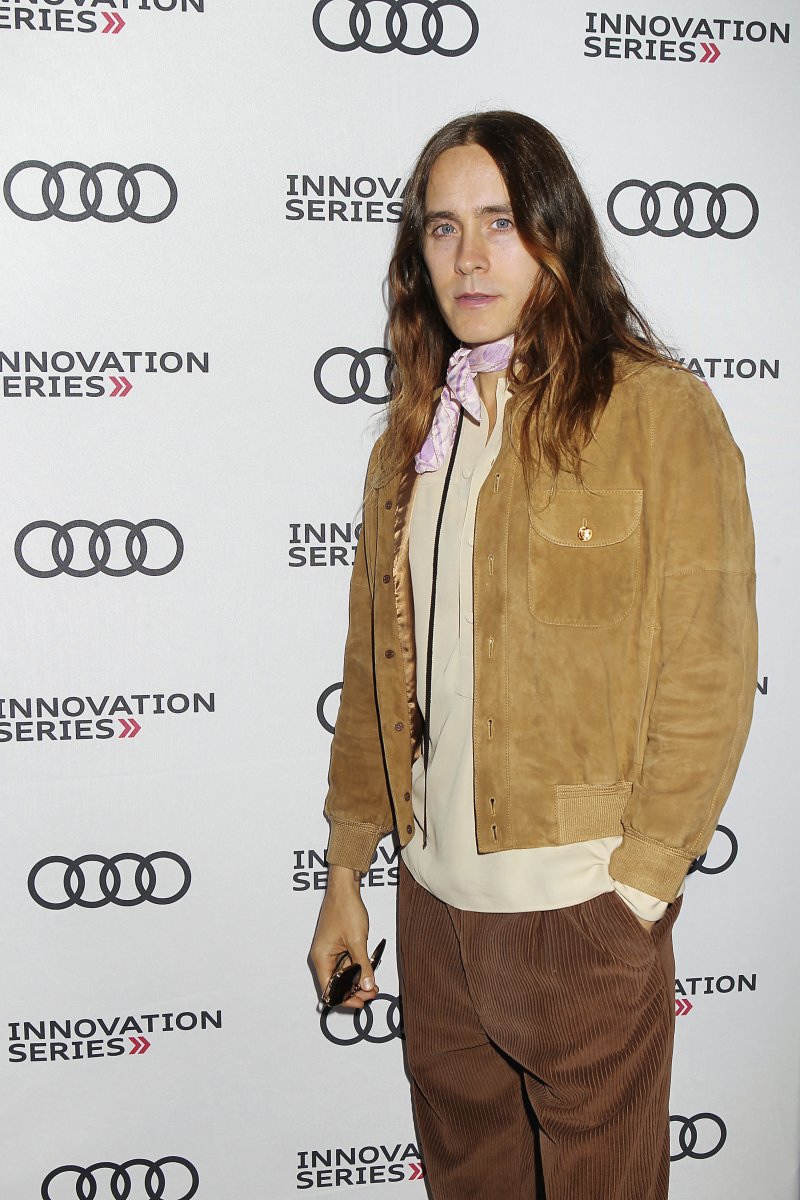

Dwight Drummond: Can you share one philosophy that you live by?
Jared Leto: One philosophy that I live by is kind of a theme, and we keep talking about it, but I’m a big fan of cliches because they’re true. I think there’s a lot of medicine there. We talked about risk and reward. We talked about failure and fear and for me, hard work pays off. I always go back to that. I look at other people sometimes, as we all do, and I’m blown away by their talents and abilities, the gifts that they have and share with the world. I have met a lot of really brilliant people and the common trait that I’ve seen in most of the people that I admire greatly is they’re willing to dig in and work incredibly hard. I’m a big believer in that.
Dwight Drummond: Not everybody can pull off having both the rockstar and the movie star career. What is it about Jared Leto that helped you find so much success in both those worlds?
Jared Leto: I just have a lot of energy. I don’t mind sacrificing a little of my time for other pursuits. I’m pretty good at time management [and have] gotten better and better at that over the years. A real important thing to me is spending my time really wisely. There might be a perception to some artists in general that we spend a lot of time celebrating life, which is great to do and I don’t knock that at all. But I don’t actually spend too much time celebrating. I spend most of my time digging in and working. That’s what I do. I love to be productive. I’d much rather write a song than go to dinner or show up at a party.
Dwight Drummond: What is your proudest achievement?
Jared Leto: I don’t ever really sit around and ruminate on my accomplishments. I don’t really visit that territory too much, you know? I’m grateful for quite a lot in my life. I’m grateful that I got to buy my mother a house; that’s a nice thing to be able to have done. And I’m grateful every time I walk onto a stage around the world and my brother and I are putting on a 30 Seconds to Mars show. Every single concert I’m on, I have a moment that hits me where I look out at an arena or a festival we’re playing, and I am just struck with gratitude. I’m grateful for that.
Dwight Drummond: When we see you on the stage and those packed auditoriums, it just seems like you’re so in your element and enjoying it so much but we don’t get to see you when you’re doing the work on the films. Do you feel the same passion for both?
Jared Leto: It’s really different. Like I said before, you’re channeling that creative energy but when you’re standing on stage, you just have that immediate connection with the audience. I always think about it. It’s like my brother, me, and the audience. You don’t have that on a film set so it’s even more important to listen to that voice that I was talking about earlier. It’s hard to beat standing on that stage. I don’t like to compare them, they’re very different experiences, but it’s hard to beat standing on that stage. Madison Square Garden right down the street, 2018 was the last time we played in New York, but it may be one of the best shows of our lives. It’s really special to climb that mountain.
Dwight Drummond: Jared, thank you so much for being a part of the Audi Innovation Series. We’ve had a lot of incredible people take part in this series but nobody that has rocked it on the rock and roll side and then knocked it out of the park on the movie side. They said you can’t be a math and an English major but you seem to have both sides of your brain to create some incredible art to put out into the world. So we appreciate you and thank you for your time today.
Jared Leto: Thanks Dwight. I’m just a rock climber trying to get by.
[yikes-mailchimp form=”1″ title=”1″ submit=”SUBSCRIBE”]


